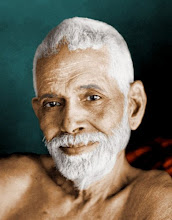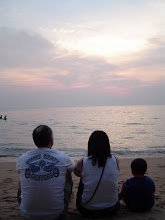
Last Friday, a Sacramento radio station held an early-morning contest in which 20 people off the street competed to see who could drink the most water over several hours without going to the bathroom or throwing up. The grand prize was a new Nintendo video game called the Wii. I don't listen to this station or play video games. The reason I'm writing about this is that one of the contestants died later as the apparent result of acute "water intoxication," and ten employees of the radio station were fired in the aftermath. The contestant was Jennifer Strange, a 28-year-old mother of three. She drank nearly two gallons of water in less than four hours before giving up after complaining that she had a headache and felt light-headed. She drove home, calling in sick to work along the way, and was found dead at home by her mother several hours later. The fired employees were the five on-air personalities from the show and supporting staff.
The Sacramento County sheriff announced that he lacked cause to conduct a criminal investigation of the incident. "It's not as if [Ms Strange] was somehow in their custody and they had a role to care for her," he said. "Rather, it was an invitation to a contest that was clearly ill-advised. She was exercising her free will." I'm not a lawyer and don't really know what the law has to say about the issue of criminal negligence, but I suspect that the sheriff is right so far as possible criminal prosecution is concerned. A lawsuit in the civil court may be an entirely different matter, and a personal injury attorney commenting on the case has already said as much. No one forced Ms. Strange to drink all that water, and she even signed a waiver absolving the radio station of all responsibility for whatever happened, but I can well imagine a slick civil lawyer making a persuasive case that those radio station employees not only should have known about the perils of water intoxication but actually did know about them and said as much on the air during the contest, and that it was, therefore, their responsibility not to put people in harm's way. At the very least, they should have made sure that all the contestants were fully apprised of the risk they were taking on.
Along with the issue of legal responsibility, I have questions about moral responsibility and about whether the ten radio staff involved in this unfortunate affair have been treated fairly. I have mixed thoughts and emotions about all of this. Let me begin by saying it's a terrible tragedy that this mother of three young children who put herself through the ordeal of the contest in order to win an expensive video game system for her children died from her efforts. Yet, having said this, it seems to me that too many people are too quick to blame others for their own foolish actions and that this growing shift of responsibility for one's actions from oneself onto others may not be such a good thing for our society. On the other hand, I recognize the psychological reality that people are naturally inclined to place their trust in authority figures. For Jennifer Strange, those radio personalities were probably people she trusted to know that the contest they were sponsoring was unlikely to present any serious threat to her health. Should she have trusted them? Obviously not. But people foolishly exhibit such trust frequently, and this should be taken into account whenever we contemplate involving others in dangerous activities.
I don't want to write a philosophical tome on the subject. I'll just say that, based on my admittedly limited understanding of the facts of the case and of all the legal principles and issues involved, I'm inclined to believe that there should be no criminal prosecution in this case, that if a civil suit is brought forth (as it almost certainly will be) it should fail (even though it probably won't), and that the radio station was justified in firing at least the five participating on-air personalities (although I'm not sure about the other staff members) involved with the show in question. In any case, I hope this tragedy makes people less inclined to participate in dangerous activities under the auspices of individuals or institutions they shouldn't necessarily trust just because they happen to hold positions of authority or public prominence, and that it also makes those who hold these positions more circumspect about sponsoring activities in which an impressionable public can place themselves in harm's way.



6 comments:
I was contemplating the station's responsibility as well, until I read in a report that the waiver contestants signed said nothing of the dangers of the contest... only waiving publicity rights.
While I fully agree that we as a society seem to be looking for somebody/something else to blame instead of taking responsibility for our actions, after reading this update regarding the station's waiver, I think they should be sued to high heaven. The reason: they knew the contest would put contestants in danger, but didn't warn the contestants of that danger. That is their responsibility. But it does go to show that you should do your own homework as well before getting involved in this kind of stuff...
If what you say about the waiver is true, it certainly makes me give more thought to all of this. Yet, if we're going to blame others for the death, how far should that blame go, and should it be confined to civil action or also extend to criminal prosecution? I've just read that the attorneys preparing to file a lawsuit are looking to sue every company even remotely linked to the station. On the face of it, this sounds like a litigious obscenity. Should everyone even tangentially connected with the death be sued and also prosecuted "to the fullest extent of the law"? Just how far should we go with all this finger pointing and legal retribution? I don't have ready answers, but the more I learn and think about this sad story, the more interesting it becomes.
Even if the contestants had signed waivers not holding the station responsible for health endangerment, I think the contestants should be suing the socks off the station.
From what I now understand, in the warm up to the contest, the on-air talent was joking about there being health dangers to their contest.
The station is responsible --"the expert" -- with respect to the appropriateness of their contests and liability issues, not trusting contestants who wander in off the street, no matter what they signed. Likewise, if your brakes fail after going to a car-repair business, it is they who would be required to have the expertise to assure your safety and would carry the weight of responsibility.
Tom, while I'm not sure I agree that we can reasonably expect our local radio station to have the same level of expertise in the medical effects of the contests they sponsor as our auto mechanic has in repairing brakes, the more I learn about this case and the more I think about it, the less I feel opposed to suing those who were directly involved in putting on the contest.
What I find particularly disconcerting is that the DJ's WERE aware of the potential hazards of water intoxication, yet they went ahead with the contest anyway. They were also aware of the fact that Ms. Strange and other contestants were feeling pretty lousy after they consumed an outrageous amount of water, yet all they did was joke and laugh about it and send the contestants on their way.
On the other hand, if the dangers of water intoxication was or should have been so obvious that the station staff showed reckless disregard for their contestants' safety, why wasn't it so obvious to the public and to the nurse who is said to have called in warning of the dangers posed by the contest that there wasn't a huge outcry stopping the contest dead in its tracks before Ms. Strange ended up dead?
I wonder if it doesn't all boil down to the fact that the station staff were aware of a previous publicized case of death by water intoxication. If this case had not occurred or had not been widely publicized and the staff had not indicated awareness of anyone dying from drinking too much water, should they still be held liable? Should they, in the absence of such readily available information, be required to research the potential medical hazards of any physical contest they sponsor, and, if so, to what level of comprehensiveness should they be required to go?
I still hate to see the finger of blame pointed away from those who freely engage in such acts and at those who allow or even encourage them to do it. But in this particular case, I think a lot of people bore significant responsibility for what happened, including the victim on the one hand and the station staff on the other.
Not all persons understand the true danger of water intoxication.
I nearly did myself in last year when I had a severe case of flu.
I was deathly ill, had neglected to drink, and realized I had not peed in several hours.
So I drank down a huge amount of tap water. Hours later, I woke up
and my body was bloated-my eyes were narrow slits, my joints were stiff and puffy and I looked like a cartoon character.
I was still dotty from high fever. The only thing that caused me to know I was in danger was I had been a participant in multi day athletic events and had heard of people being hospitalized because they drank too much plain water without sufficient electrolytes.
Without that prior knowledge, which not all citizens are aware of, I would not have known that I needed salt, and two that if I did not resume urinating in two more hours I would need to take myself to an emergency room.
Fortunately for me, the home treatment was enough.
I agree the station was in a position of trust. It will be up to the courts to determine whether there's sufficient evidence to demonstration that the radio station had a fiduciary role and failed to function properly in that role.
Its alarming that they failed to heed telephone warnings from at least one health care provider that it was a dangerous situation.
<< Its alarming that they failed to heed telephone warnings from at least one health care provider that it was a dangerous situation. >>
Yes, I think this and the fact that they expressed awareness on the air of a recent death by water intoxication is the most damning indictment against them. But I also find it curious, if not damning, that the health care provider who called in and other knowledgeable people in the community didn't do more to stop this contest or, at least, make sure that the contestants were fully apprised of the dangers they were taking on and that they were evaluated during and after the contest.
It seems to me that NOBODY took the dangers seriously enough. What I wonder is WHY, and what I think is that, in cases like this, "Hindsight is 20/20."
Post a Comment